Award-winning innovation that comes from the heart
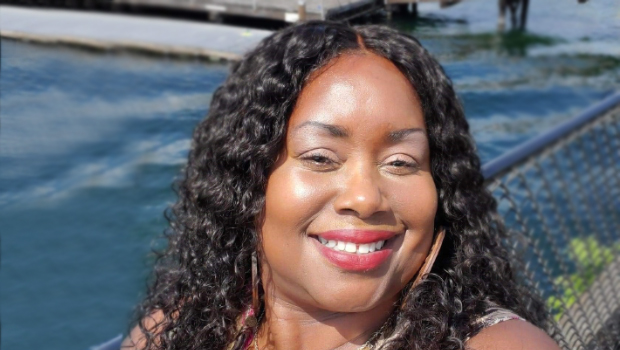
Larnette Slade
Community Resource Specialist Larnette Slade talks about the role that earned KP Washington a national innovation award
By Larnette Slade, a community resource specialist at Kaiser Permanente Washington
At Kaiser Permanente Washington, community resource specialists (CRSs) are members of the primary care team who help connect patients to community-based resources for social needs such as housing, transportation, caregiving support, and healthy food access. Originally developed as part of a research study, the CRS role is now integrated across all of Kaiser Permanente Washington’s primary care clinics and was further evaluated and improved through the organization’s Learning Health System Program. On Nov. 10, the National Alliance of Healthcare Purchaser Coalitions recognized Kaiser Permanente Washington and the CRS Program with a 2021 eValue8 Innovation Award. The award honors innovative work and demonstrated results among health plans that are part of the National Alliance’s eValue8 survey of quality and performance. In this blog, we hear from CRS Larnette Slade about what her job means to her and how it feels to be part of an award-winning team. Larnette has been a CRS for nearly 5 years, serving members at Kaiser Permanente Washington’s Rainier and Renton Medical Centers.
I started working as a community resource specialist at Kaiser Permanente Washington because I love being able to help people. It’s just in my heart and in my nature. As a CRS, I know I’m helping people every day by finding resources for them and putting together the pieces of the puzzle that can help them live a healthier life.
Health care can be a maze for people, and I’m here to help them find their way through it. For example, I recently worked with an elderly gentleman who needed dentures and couldn’t afford them. He had called community organizations that he knew about, but everyone told him he wasn’t eligible for help because he had Kaiser Permanente insurance. Nothing in his records showed that he had dental benefits, and he was confused and frustrated. He didn’t know how to navigate the system or what steps to take next.
So, I called our Bridging Care and Coverage department and found out that, while he doesn’t have dental coverage, he does indeed have a small dental allowance of $100. With that information cleared up, he now qualifies for an income-based program in the community and can get the dentures he needs. Dental health is so important for overall health. Having dentures can help this patient get better nutrition, take better care of his health, and feel more comfortable in social activities. He is so happy that someone took the time to dig deep into the information to help him get this figured out.
We get results like this every day through the CRS program. We help people find caregiving resources, transportation to their medical appointments, and assistance with things like food and housing. And that’s what makes the program so special: Our patients are not just coming in and getting a medical diagnosis, lab tests, and a prescription. We are seeing our patients as whole people, and we’re doing what we can to take care of all their needs.
How CRSs connect with patients in need
The CRS program is integrated into primary care, and most of our patient referrals come from primary care providers, nurses, or medical assistants. But we can also get referrals from other departments, including pharmacy and radiology. CRSs are a great resource for our care teams — because we can step in to help with social needs and allow other care team members to stay focused on patients’ medical needs.
Care teams refer patients to us in different ways, including by referral in the medical record. Sometimes, when a patient is in the clinic and needs help right away, we’re able to do a warm handoff so I can meet with them and make that initial connection face to face. Being able to provide social health support as part of a primary care visit is a great use of patients’ time. No matter how I make that first connection, my job is to work with each patient to find the information and resources that can help them.
A key piece of that is consistently following up with them. Part of our CRS workflow is to schedule follow-up calls with patients — so we can make sure they’ve gotten the help they need. If they haven’t, we continue to support them and advocate for them until they do.
Recognition that validates the work CRSs do every day
Playing the role of advocate is probably the most important part of my job as a CRS. Many patients don’t know how to advocate for themselves, so I help by being their voice when they need it. Sometimes that means being on the phone with them when they call a community organization to ask about specific resources. Sometimes that means reaching out to other departments at Kaiser Permanente to answer the questions patients don’t know how to ask. Whatever it takes, I’m focused on helping patients navigate those next steps.
My fellow CRSs and I were so excited when we found out the CRS program at Kaiser Permanente Washington had been recognized with a 2021 eValue8 Innovation award from the National Alliance of Healthcare Purchaser Coalitions. The work we do as CRSs can be challenging and heart-wrenching, but it’s so valuable. Our patients need us. Getting this award is very validating and reminds us all what we’re here for: to make sure our patients have access to all the services and resources they need to be healthy and live a good life. It just feels so good to be a part of that.
ACT Center
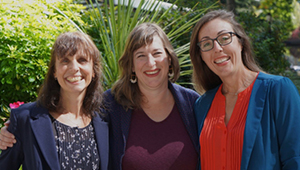
New center focuses on equitable, whole-person health care
Kaiser Permanente launches the Center for Accelerating Care Transformation.
healthy communities
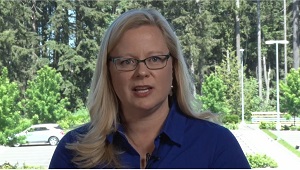
Partnering with research, CRS program addresses social needs in primary care
Cindee DeWitt describes how Kaiser Permanente Washington’s community resource specialist program stands out among efforts to meet patients’ social needs.
research
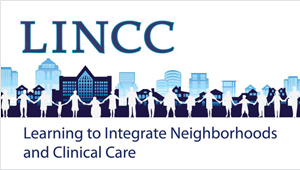
LINCC-ing patients with community resources
Study ends but benefits for Kaiser Permanente members continue — thanks to a new support role in the regions’ clinics, writes Dr. Clarissa Hsu.
Video
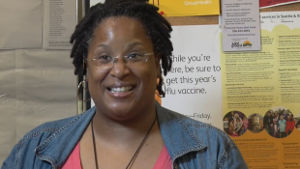
Watch our new video, ‘The Community Resource Specialist role’
Dr. Hsu invites you to see three patients and two community resource specialists tell the story of creating this powerful new role in community health care


